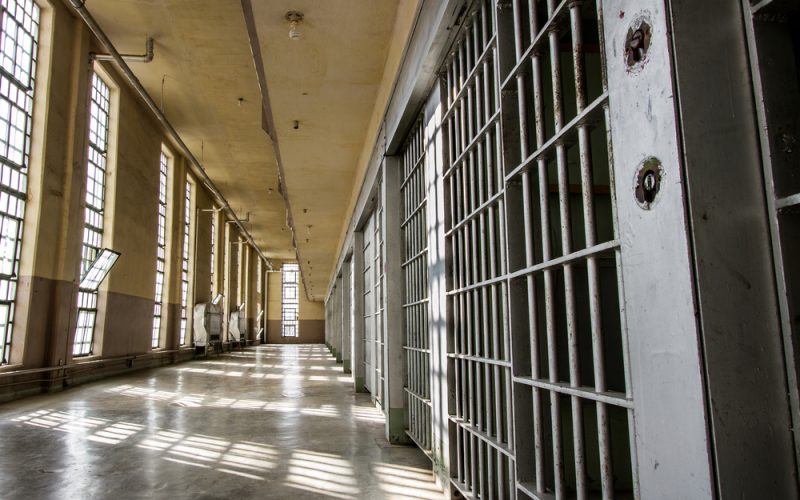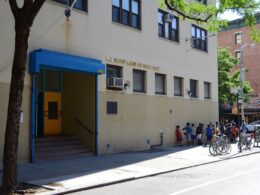Now that our state budget process has finally wrapped up, it’s time to focus on reforming New York’s dysfunctional parole process.
Thousands of New Yorkers who have served their time remain languishing behind bars. The systemic failure to release those ready to return home strains a dangerous carceral system and costs New York taxpayers billions of dollars every year. But we have safe and practical solutions available: The Fair & Timely Parole Act and the Elder Parole Act.
Fair & Timely Parole would restore the Parole Board to its original purpose of evaluating eligible incarcerated people for potential release based on their rehabilitation and risk of violating the law, while Elder Parole gives aging New Yorkers the opportunity to have their personal transformation considered by the Parole Board, reducing the risk of death by incarceration.
These bills are not radical, nor do they guarantee parole. Because as survivors of violent crime, we are both serious about safety. (Tracie suffered sexual abuse as a child and later lost a loved one to murder. Julia is a survivor of sexual assault and domestic violence).
Having hope for life beyond prison is critical for incentivizing incarcerated people to rehabilitate. That includes taking accountability, beating addiction, earning educational degrees, and leading anti-violence programs. If incarcerated New Yorkers have no real hope of being released no matter what they do with their time in prison, finding the will to change for the better becomes much harder.
Furthermore, stark racial disparities in sentencing and parole have fueled intergenerational poverty for many Black and Brown families. Releasing people at an age when they can contribute to the financial well-being of their families is proven to help uplift them from poverty, immediately improving community safety.
Those who believe granting parole undermines safety ignore the countless examples of formerly incarcerated people positively contributing to their communities, including serving as mentors for at-risk young people and becoming small business owners. What’s more, the research shows that people on parole have lower rates of recidivism than those who are forced to serve their maximum sentences.
Many crime survivors also agree that people who have caused harm in the past are capable of positive change. Surveys show most survivors prefer rehabilitation over endless punishment. In fact, five of the six people who identified as survivors while testifying at a public hearing on parole justice supported the relevant bills.
By law, the Parole Board is already supposed to evaluate eligible people for release, but what’s missing is a clear standard for the Board to follow. The Board now too often acts on bias, politics, or public pressure, denying parole to people who have demonstrably changed and aren’t at risk of re-offending. Worse still, these arbitrary decisions fall hardest on people of color. Between 2022 and 2024, the Parole Board was 32% less likely to grant release to a person of color than a white person. That’s not justice — it’s discrimination.
These bills would formalize what the Parole Board should already be doing and therefore limit arbitrary rejections.
Indefinite imprisonment not only disincentivizes rehabilitation, but it also subjects incarcerated people to unwarranted trauma and violence. Robert Brooks and Messiah Nantwi are just the most recent examples. Both of these individuals were brutally murdered by a mob of correction officers and supervisors.
As chair of the state Senate committee overseeing prisons and as a local advocate in the city with the highest incarceration rate in the state, we receive almost daily reports of unimaginable physical and sexual violence that incarcerated individuals suffer at the hands of correction officers, with little to no accountability. We must release community-ready New Yorkers and reduce the number of people needlessly put at risk of being abused by a correction officer — because as a reminder, incarcerated people were sentenced to prison, not to be murdered or beaten.
The Fair & Timely Parole and Elder Parole bills are a practical and safe way to address this crisis. Beyond the benefits to those who would have a fairer shot at release and their families, these bills would save New York taxpayers about $522 million annually.
Excessive imprisonment benefits no one, especially when we know that people have the capacity to change. The Fair & Timely Parole Act and Elder Parole Act are key to helping ensure that parole is operating the way it should.
Salazar is a state senator representing the 18th District in Brooklyn and parts of Queens and chairs the Committee on Crime Victims, Crime and Correction. Adams is a survivor of crime and community leader with VOCAL-NY and the RAPP Campaign based in Rochester.








